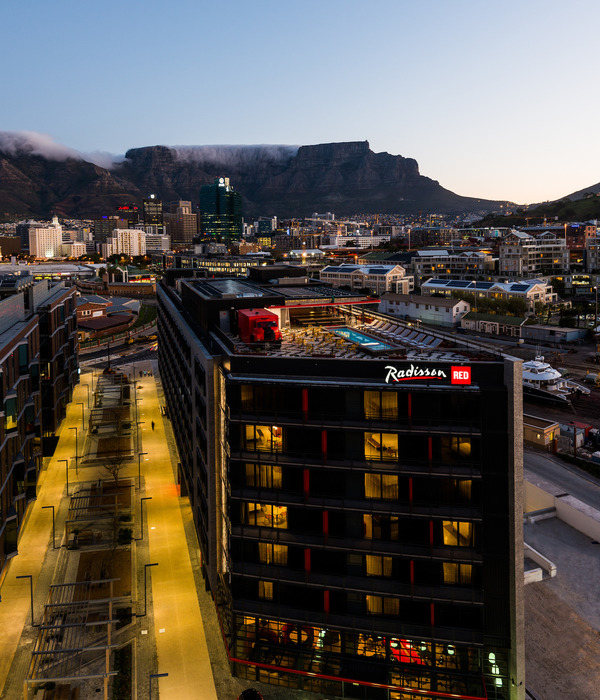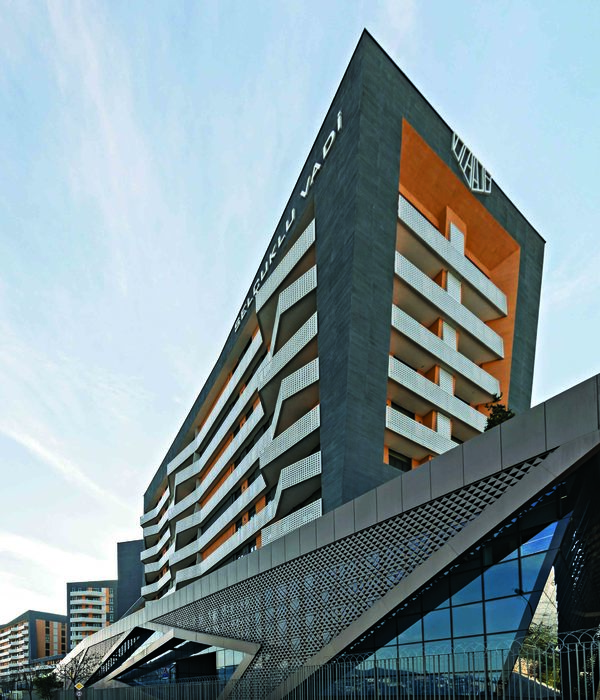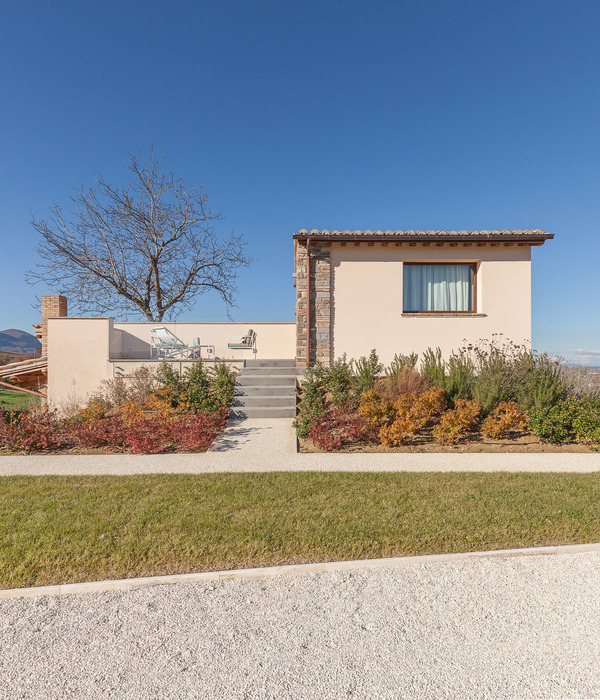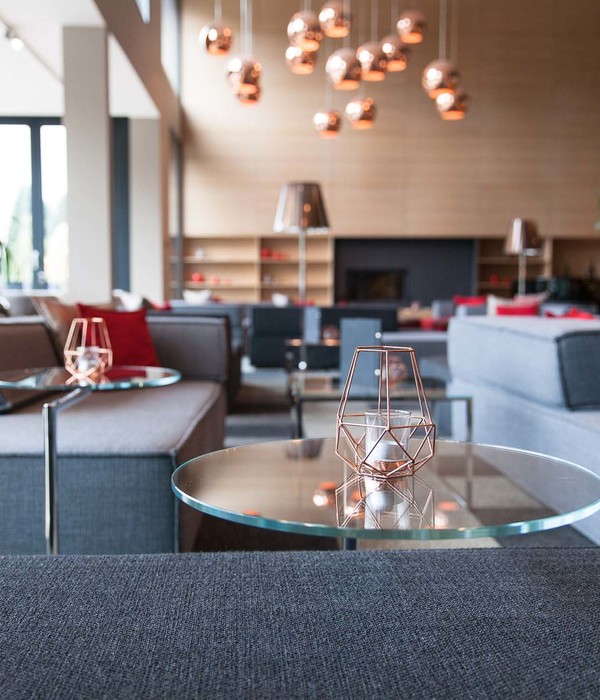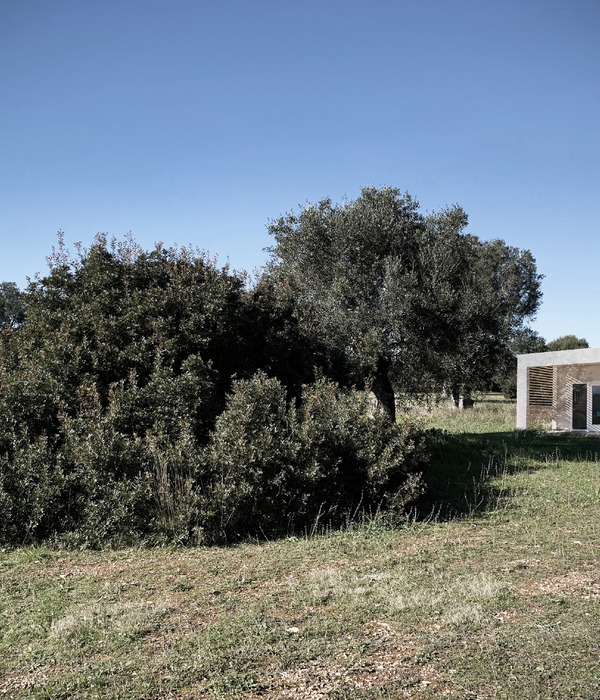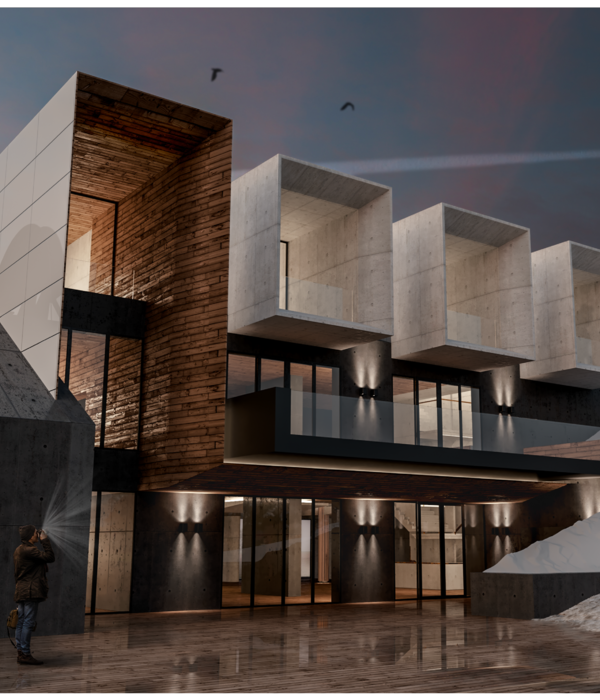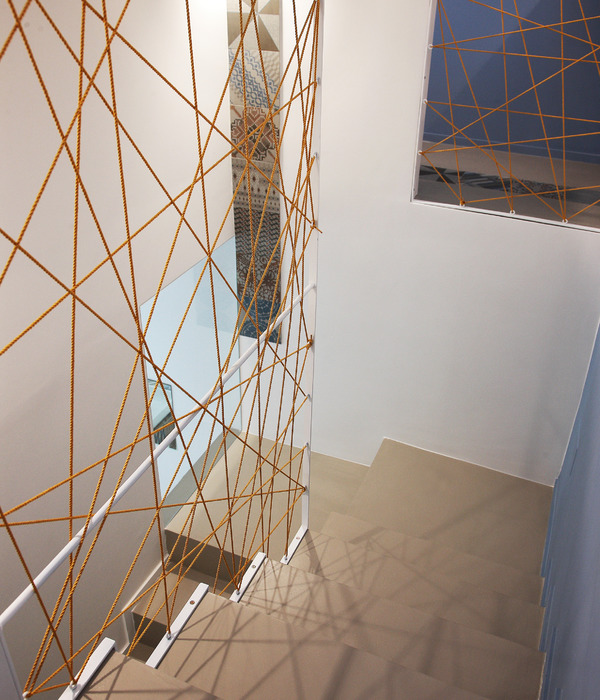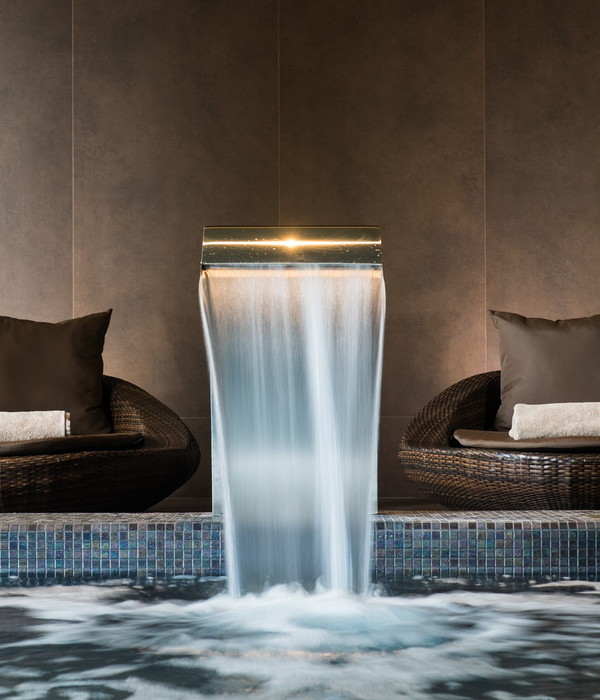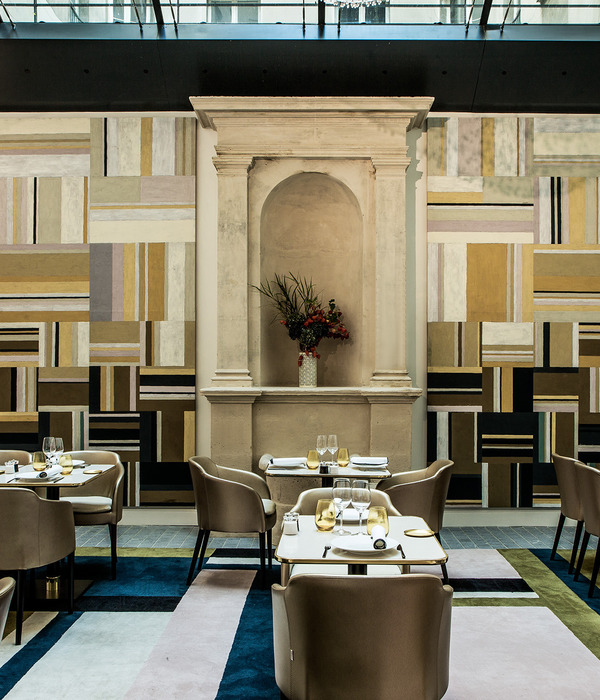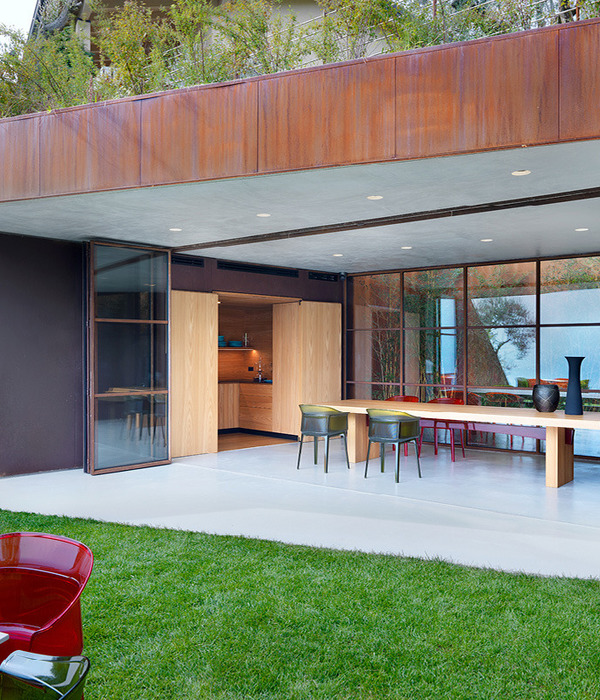Luxury With Modesty
Beijing Conrad Hotel
Property Developer: Conrad Beijing
Lighting Design: GD-Lighting Design
Lighting Designers: Yan-Zhi Wang, Yun Wu, Qing-Lai Zheng
Architectural Design: MAD Architects, BIAD
Interior Design: LTW Designworks
SPIN
Project Location: No.29, North East Third Ring Road, Chao Yang District, Beijing
Completion Time: December, 2011
Area: 45,237 m2
Photographer: He Shu
Beijing Conrad Hotel is located within the CBD area at Beijing’s East Third Ring. The novelty of architecture’s fish net façade appears ever more unique among the mediocracy of surrounding buildings. This is China Merchants Property Development (CMPD)’s first investment in a five star hotel. Throughout the design and construction phases, designers have put in extra efforts to merge and combine CMPD’s hundred years of history with Conrad’s modern characteristics. The details of design are also expected to reveal to its most incisive and vivid through lighting. Between the flow of lights and shadows, eastern aesthetics cleverly reserves within the distinctiveness of every decorative detail. Among the main lobbies’ story telling ink painting screens, the Japanese restaurant’s traditional nostalgic elevation profile, and the Chinese restaurant’s charming silk textured walls; lighting design have created a passage between past and future, given Conrad a unique soul.
In the main reception area, interior designers have used many delicate and rare materials, such as the imported metallic covering fabric on the visible ceiling surfaces; creating difficulties in downlight installation with hidden frame. This is because mounting openings would create gaps surrounding the light fittings, therefore framed fittings was used instead. In addition, after communication with interior designers, rose gold mirror finished stainless steel was placed within the ceiling’s square indentations to prevent glare.
In the lobby bar, decorative art walls are positioned on both sides’ lounging area. Light troughs behind the back walls were specially designed for light trimming. The decorative art walls consist of two areas; an inner surface with covering fabric and an outer area placed with sculptures and paintings. Considering the covering fabrics, designers used light trimming techniques to wash the inner surfaces from top to bottom uniformly.
Designers overlay the adjacent lighting patterns by positioning the circular recessed downlights horizontally with 400mm intervals, thus creating a uniform wash of downlight. At the same time, after communication with interior designers, adjustments were made on the size of light trough visors and fixtures' installation angel. These changes were proposed due to sofas positioned directly underneath. After strict lighting calculations, the changes were essential to prevent unnecessary discomfort glare to the guests sitting on the sofas. Accent lighting with spot lights were focused on the art works, accentuating the layering effects of three-dimensional space. Between light and dim, artworks are presented with different visual effects. All artworks in the hotel are custom- made with the same style but different techniques and materials. The most interesting piece is the fish style sculpture placed in the center of lobby area. The shape of sculpture consists of five unique tropical fish, wielded manually with rusted metal wires. Surrounding the sculpture, there are the main lobby wall made of resin modules with high luminance, and the U shaped crystal screen. Considering surface materials of its surrounding areas, lighting the sculpture with rusted metal finish was rather difficult. However, revealing its general shape was still essential. Designers placed 1W, 4000K adjustable spot lights around the sculpture to form accent lighting at the bottom, creating the feeling of ‘Water’. At the same time, remote controlled ceiling lights lit up the “fish crowd” from top to bottom. Interestingly, between the bright warmer lit background wall, and the focused cooler lit sculpture, contrast of warm and cool, bright and dim made the “fishes” jump out.
The multi-purpose room could be divided into two or three individual rooms with varied functions such as conference, banquet and events. Lighting system is designed with different scenes to fulfill functional and local lighting for these settings. Remote controlled ceiling spot lights could be adjusted according to the layout or placement of events, satisfying the need for unfixed position and frequent adjustment of fixtures.
At different times, with the subtle changes from light and mood, one could quietly enjoy a cup of coffee, a gentle smile and a space filled with sweet scents.
Yes, all is good.
{{item.text_origin}}

